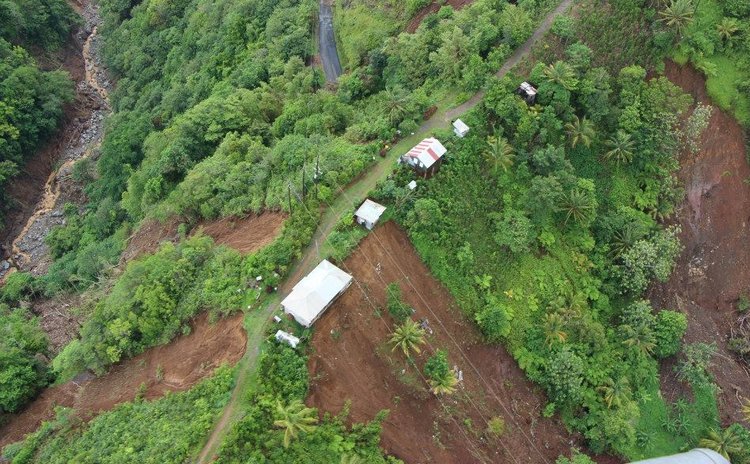More Stress
Petite Savanne disaster puts bankers in a tight spot

Government's position that Petite Savanne is uninhabitable has put financial institutions in a tight spot with no easy way out.
How do they deal with Petite Savanne borrowers who have lost their livelihood and have no alternative source of funds to repay their loans?
How do they treat properties in Petite Savanne used as securities that now have zero value because the area has been deemed unfit for human habitation?
Financial institutions are cagey about how they are dealing with Petite Savanne, but Chief Executive Officer of the National Cooperative Credit Union, Aylmer Irish is forthright.
"We have not totally decided on a way forward as it relates to that, but we continue to work with the members," he said. Irish said the credit union is deferring debtors' payments on the principal and waiving interest.
"We continue to entertain our members' requests . . . we continue to grant them, at least in the interim . . . deferments," he explained.
Asked about the impact of defaulting storm victims on the Credit Union, Irish said it has not been severe since the credit union's cash flow is strong.
Yet there is some impact because the financial institution cannot get the anticipated returns from loans to Petite Savanne residents.
Other financial institution sources concurred that a final way forward has not been decided, even as they continue to defer payments for borrowers.
One resident who was in the process of repaying a home loan said the bank has granted extensions on repayments for successive three-month periods.
"It's unfair to have to pay for a place you can't live in," the resident said.
For this resident, it's a wait-and-see situation.
The house is habitable; but remember the entire area is deemed unsafe.
Meanwhile, some financial institutions have been checking with clients to find out whether their visits to their insurers have been fruitful.
A senior representative of a major insurance company said that in 90 % of cases, home owners' insurance does not cover landslides, mostly because they opt not to pay for it.
"They don't see the big picture that it's one of these eventualities that could cause serious damage to their properties as in the case of Petite Savanne," the representative said.
The representative added that very few of the residents of Petite Savanne had landslide coverage.
While the company did not have any significant claims obligation to the residents of Petite Savanne, it honoured claims by residents of other communities.
Those claimants had comprehensive policies covering "acts of God", including displacement benefits entitling them to claim for renting dwellings comparable to their lost homes.
The situation has forced this company to rethink the way forward by paying more attention to the areas of origin of the risk.
"That is not to say we will decline a risk because it is in an unusual high risk areas. But we will increase the premiums in comparison to the risk," the representative said.
However, coverage would be declined if the company decides that the risk is too great.




